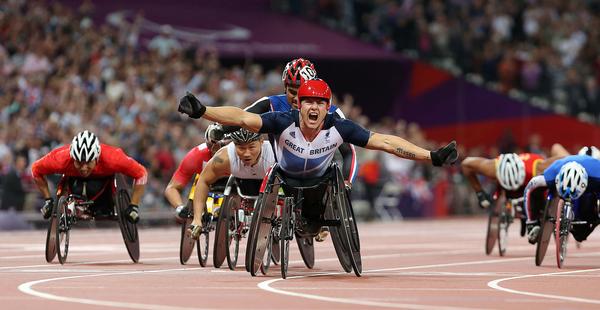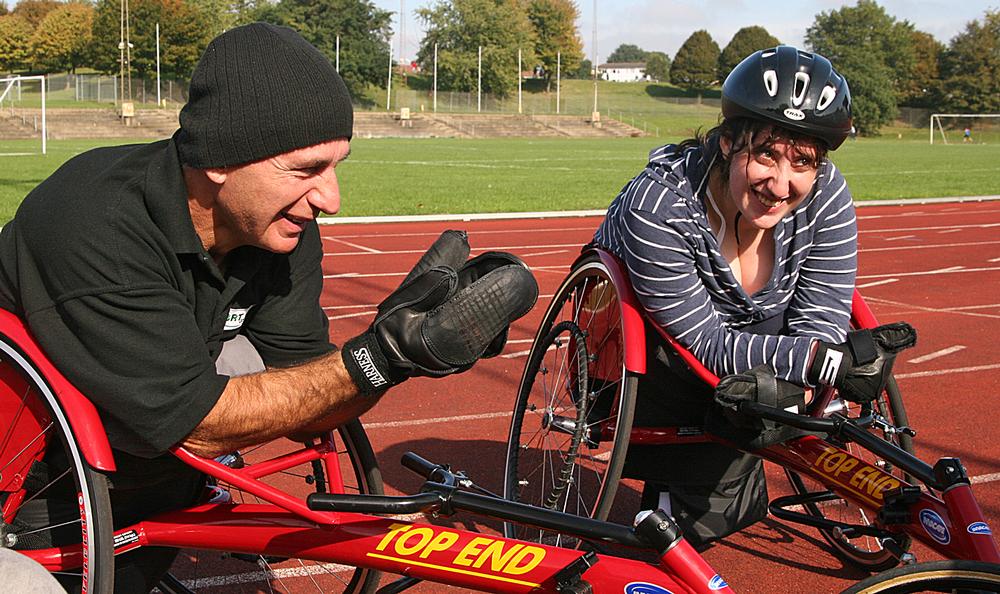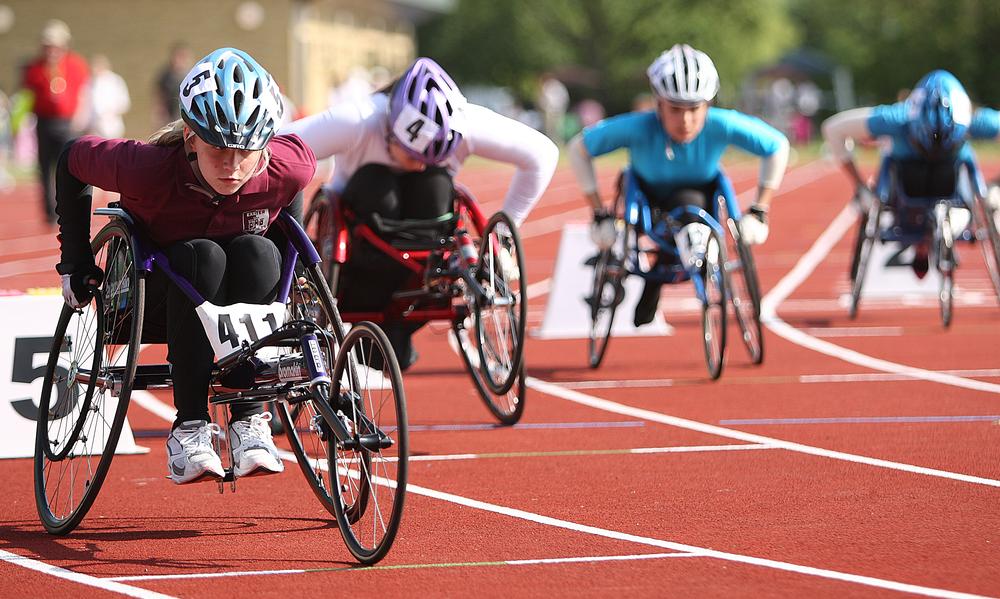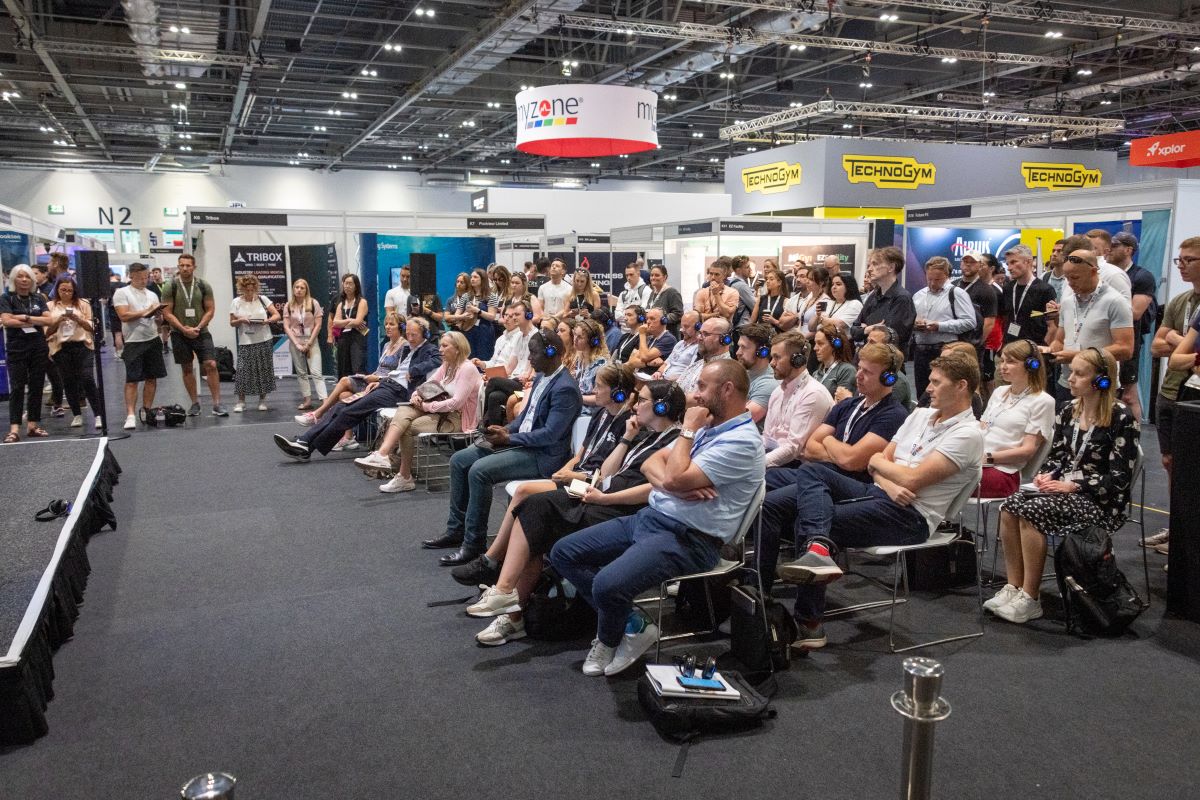Wheelchair racing
Disability sport has raised its profile in the UK in recent years, thanks partly to Paralympics GB's highly successful Beijing and London Paralympics. Tom Walker looks at wheelchair racing and the way the sport is looking to benefit from the interest – and to translate it into increased participation levels

The London 2012 Paralympics provided a tremendous boost for disability sport in the UK. The combination of Paralympics GB's medal haul (a total of 120 – an improvement on the 102 won at the 2008 Beijing Games) and the unprecedented media coverage engaged the nation and sparked an interest in disability sport that has seen membership numbers at clubs and centres increase across the country.
This surge in interest comes at a crucial time. Sport England figures show that only one in six disabled people regularly take part in sport – compared to one in three non-disabled people. Add to that the finding that physically inactive, disabled adults are 50 percent more likely to end up with a chronic disease – such as cancer, diabetes, stroke or heart disease – and it is easy to see why there should be an urgency to remove any barriers disabled people face when wanting to take part in sport.
To help with this, Sport England has steadily increased its funding of disability sport. Of the £150m of Lottery funding from Sport England's Places People Play programme, a total of £10.2m has been ring-fenced to improve sports on offer for disabled people. In September 2013, a year after the London 2012 Paralympic Games, Sport England announced a further £8m of funding aimed at giving disabled people across the country more opportunities to get into sport. This includes investment of £7m through a second round of the Inclusive Sport fund and £1m in Get equipped, a new disability equipment fund.
The grassroots organisation is also working with supermarket chain Sainsbury’s on the Active Kids for All Inclusive Community Training programme to improve the quality of sport provision for disabled people. With £1m of Lottery funding and delivered in partnership with the English Federation of Disability Sport (EFDS) and sports coach UK, by 2016 the programme will have trained 10,000 community activity leaders and coaches to deliver confident, sports-based grassroots sessions for disabled people.
Setting an example
One of the disability sports to have benefitted from the increased interest post-2012 is wheelchair racing. The success of athletes such as Hannah Cockroft, David Weir and Mickey Bushell have built on the achievements of Dame Tanni Grey-Thomson and created role models for disabled youngsters.
"The London 2012 Games certainly raised interest in disability athletics," says Liz Purbrick from England Athletics, the organisation ultimately responsible for growing all forms disability athletics. She adds that the Games and the resulting media coverage has not only increased participation at grassroots level but also had a positive effect on the number of people taking part in elite competitions.
"The ranking lists give a clear indication that the numbers of wheelchair users taking part in athletics are rising – and that the standards are also increasing. There are currently 177 classified wheelchair racers but there are more athletes who have come into the sport and want to compete who have yet to be classified."
Purbrick emphasises that the seemingly low number only counts those with an official classification of their level of disability and not the hundreds of athletes who take part in unofficial events and competitions. The classifications – such as T51 or T52, signifying that athletes have activity limitations in both lower and upper limbs – are crucial to ensure fair racing at the highest level.
"While athletes need a formal categorisation to race in official events, people can of course train and participate in more recreational and informal ways without such a classification."
Competitions range from 100m through to 10,000m on the track and from 1 mile to the marathon (and beyond) on the road. Wheelchair racing is also an element of paratriathlon, alongside swimming and handcycling. There is a summer track season – April to September – but road races take place all year round.
Growing the numbers
Through its work to grow the grassroots of wheelchair racing, England Athletics works closely with a number of partners – including British Athletics, WheelPower, CP Sport and EFDS. Purbrick says that the targets set for the sport are ambitious but achievable. "We're aiming to attract 40,000 new disabled participants to athletics by 2017, she said.
"This includes all impairment groups, all event groups and both recreational and formal club/competitive athletics. Our focus is on increasing opportunities and participation among wheelchair users and is not necessarily event specific to wheelchair racing, although this is obviously one of the possible opportunities we want to make available to as many people as possible.
"We work with a number of partners on the delivery/planning including affiliated clubs and running groups, national disability sports organisations (such as WheelPower and CP Sport), Sport England, EFDS, County Sports Partnerships, local authorities and Schools."
To attract young people to the sport, England Athletics and its partners deliver general development tools for clubs as well as operate a wide range of specialist programmes and promotions.
One of these is the Wheelchair Racing Start Up scheme. The initiative allows clubs that are affiliated to England Athletics to sign up as ‘Start Up groups’. The aim is to help identify locations that boast equipment and coaching expertise in order to attract people to try wheelchair racing without the need to purchase their own equipment. It also enables organisations (such as WheelPower) to market the clubs directly to wheelchair users.
Other participation schemes include Push England, a strand of England Athletics' recreational running programme Run England. It has been designed to get more wheelchair users physically active by pushing in their day chairs – and encourage them to advance on to take up wheelchair racing. Meanwhile, an online registration system has been set up to help any disabled person who is interested in taking up athletics to be matched with an opportunity locally to them to get started
Facilities strategy
As wheelchair racers are able to use the same athletic venues as non-disabled athletes, there is no need for a nationwide strategy to produce wheelchair racing-specific facilities for the sport. Rather, efforts are being made to make existing athletics venues accessible to wheelchair users. This includes parking, changing rooms and an easy access to the track. There are basic accessibility guidelines for facilities, which outline requirements for access to indoor rollers, racing chairs and chair storage – all which are invaluable to ensuring a comfortable and safe experience for wheelchair users.
"Due to the nature of wheelchair racing, there isn't really a need to accredit facilities and to recognise them in that way. Rather, we have produced basic accessibility guidelines. For example, different track surfaces affect the speed for wheelchair racing, so we list preferred surfaces. But in reality, wheelchair racing can take place on any surface – as well as on the roads."
"More important than having facilities with optimal tracks", adds Purbrick, "is the availability of racing chairs and knowledgeable coaches in order for people to have an easy, positive introduction to the sport. Provision of equipment for wheelchair racing – chairs, gloves, and helmets – and the coaching provision at a club are factors which have a greater impact on enabling beginners to get started than facilities."
"Some clubs do not necessarily have coaches with knowledge and experience, in just the same way some athletics clubs might not have a pole vault or hammer coach. So most facilities used for athletics are accessible to wheelchair users but they may lack the necessary equipment and coaching expertise to provide training for wheelchair racing specifically as an event."
To combat this, England Athletics has strategies in place to support clubs and coaches. These include an online wheelchair racing coaching qualification and "Introduction to Wheelchair Racing" workshops held as part of the organisation's Local Coach Development Programme, "We've produced the Equipment and Funding Document on Wheelchair Racing which offers people easy step-by-step guidance on how to get involved and where. We've also worked with Sport England on its ‘Get Equipped’ programme, which we hope will see further funding to provide wheelchair racing equipment. Similarly we are currently working with WheelPower on the WheelAppeal programme to further access funding for clubs to buy equipment to attract new participants to wheelchair racing."



Recreation Assistant (Dry Site)
Party Leader
Cleaning Assistant
Duty Manager
Duty Manager
Team Leader (Harrow School Fitness Club)
Centre Manager (Leisure)
Director of Operations
Fitness Motivator
Recreation Assistant/Lifeguard (NPLQ required)
Membership Manager
Recreation Assistant
Swim Teacher
Swim Teacher
Chief Executive Officer, Mount Batten Centre
Swimming Teacher
Swimming Teacher
Company profile

Featured Supplier

Property & Tenders
Company: Knight Frank
Company: Belvoir Castle
Company: AVISON YOUNG
Company: London Borough of Bexley
Company: Forestry England














